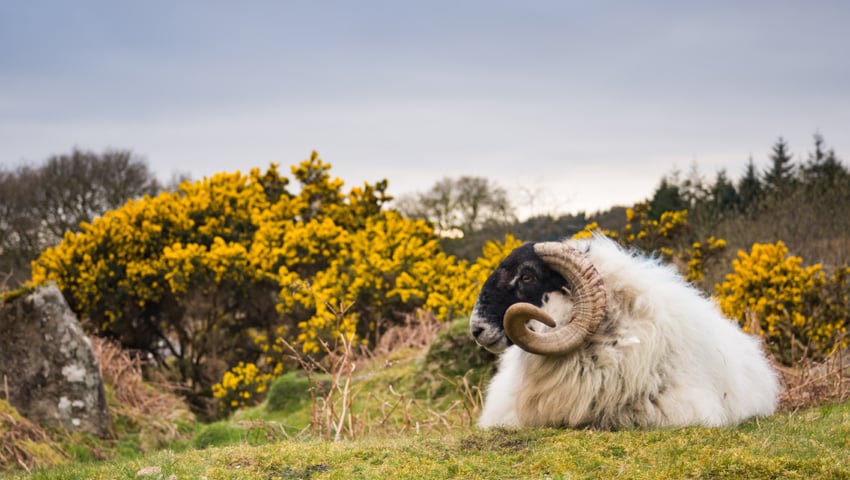Wild Justice is challenging what they call the ‘over-grazing’ of Dartmoor’s commons to try to help internationally important areas of heathland back into favourable condition.
The organisation has written to the Dartmoor Commoners’ Council (DCC), the body responsible for managing livestock levels on the Dartmoor Special Area of Conservation (SAC).
The letter calls for commoners to be ordered to reduce stock on all Sites of Special Scientific Interest (SSSI) making up the SAC where grazing pressure is a problem (particularly from sheep in winter) so that their habitats can recover.
The letter signals the start of a High Court process to challenge DCC’s failure to take steps to prevent over-grazing. If DCC fails to send a satisfactory response, Wild Justice will apply for a judicial review of DCC’s failure to maintain and enhance protected sites on Dartmoor’s commons.
The legal challenge is being brought because of responsibilities the DCC has to protect the Dartmoor habitats under the Dartmoor Commons Act 1985, the Wildlife and Countryside Act 1981 (WCA), and the Conservation of Habitats and Species Regulations 2017.
Dartmoor’s commons are designated an SAC to protect four important habitat types: Northern Atlantic wet heaths with erica tetralix; European dry heaths; blanket bogs and oak woods. These habitats are found on the six SSSIs making up the SAC. As a statutory public body, DCC has a duty to take reasonable steps to further the conservation and enhancement of the Commons.
Wild Justice launched the challenge following a request for information to the DCC under the Environmental Information Regulations 2004, which revealed DCC had not issued any limitation notices over stocking levels in the past 10 years.
DCC confirmed it had no documentation to show how it had taken account of “the conservation and enhancement of the natural beauty of the area” as required by the WCA and it had no documentation to show that it had considered the requirements of the EU Birds and Habitats Directive, when controlling stocking levels.
In its letter to DCC, Wild Justice points to recent government data outlining the poor condition of heath and Blanket bog in SSSIs at Dendles Wood, East Dartmoor, North Dartmoor, South Dartmoor, Tor Royal Bog and Wistman’s Wood. Natural England assessments show grazing pressure is a key reason for the unfavourable condition of 16 SSSI units covering 9,273ha, or 40 per cent, of the SAC.
The wet and dry heathlands cover 10,280ha of the SSSIs but, according to the Natural England condition assessments and site checks, 90 per cent of these heaths are in unfavourable condition because of grazing pressure.
Wild Justice says there has been a failure by DCC to:
- Make regulations to ensure that the commons are not overstocked
- Discharge its statutory duty under the Dartmoor Commons Act 1985 to conserve and enhance the natural beauty of the area
- Give effect to section 28G Wildlife and Countryside Act 1981, by which it must take reasonable steps to further the conservation and enhancement of the flora, fauna or geological or physiographical features which make the sites of special scientific interest
- Give effect to regulation 9(3) of the Habitats Regulations 2017, under which it should issue any limitation notices to control overstocking
Wild Justice said, “Dartmoor’s commons are often regarded as a landscape of wild beauty, but the data shows us that they are not in a good state for nature. When over 90 per cent of its internationally important protected heaths are in unfavourable condition, and when we know that’s because of grazing pressure, then something has got to change. Wild Justice is therefore asking Dartmoor Commoners’ Council to use its power and responsibility correctly to make this change happen.”
Wild Justice solicitor, Carol Day, said, “The fact that grazing pressure is causing key wildlife habitats on Dartmoor to deteriorate is not new and is borne out by Government data. Dartmoor Commoners’ Council is a statutory public body tasked specifically with controlling levels of stocking on the commons with their conservation and enhancement in mind – our client calls on DCC to use the powers at its disposal as a matter of urgency.”
